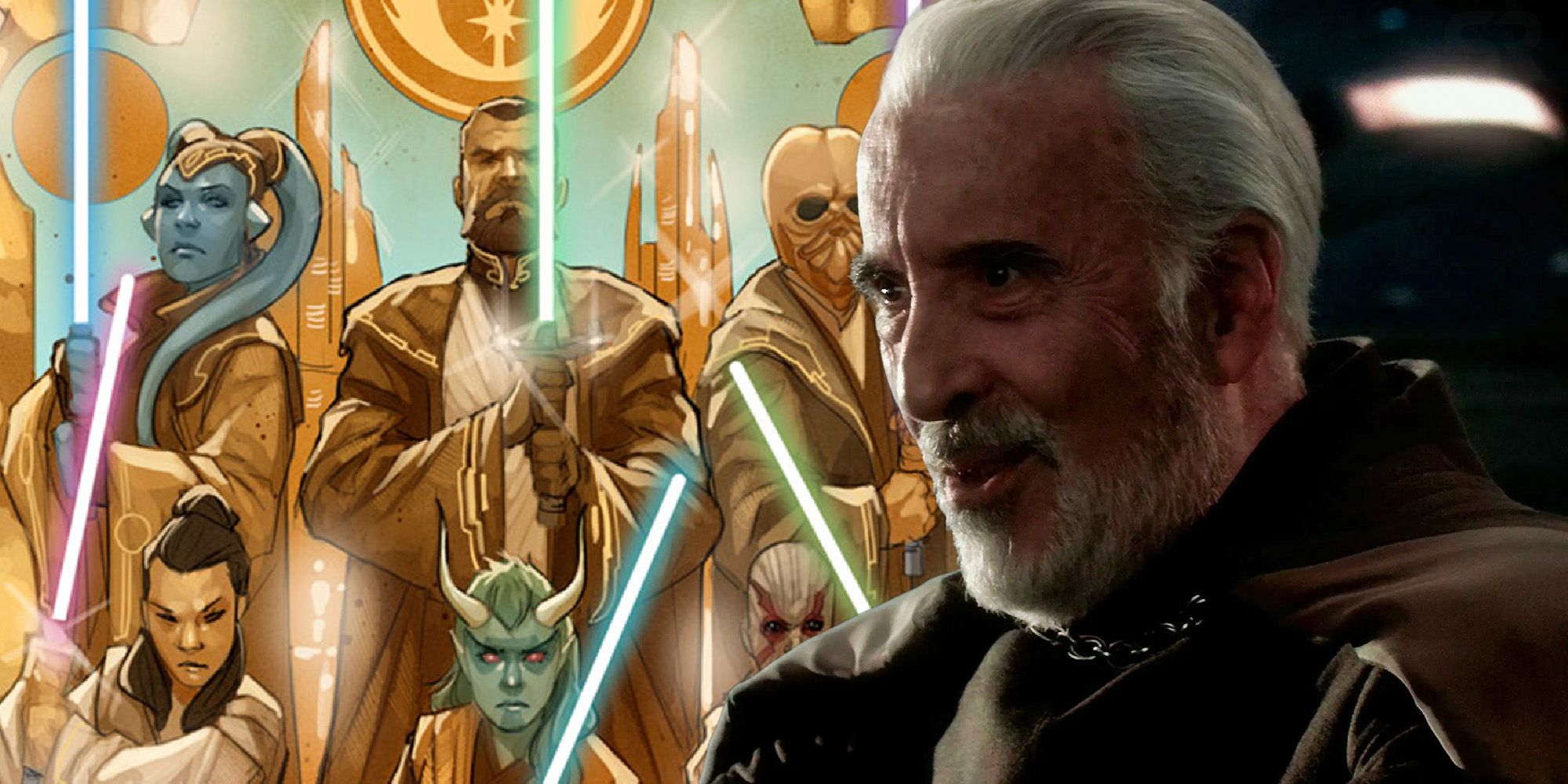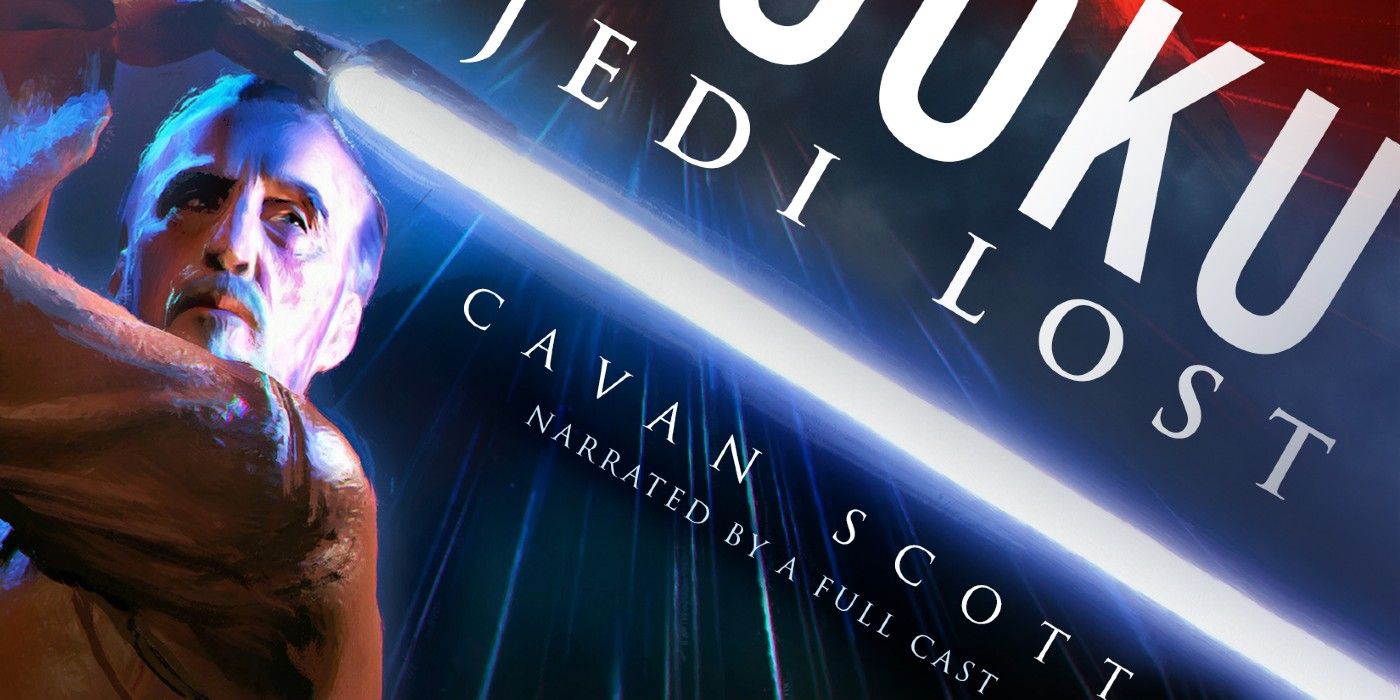
Count Dooku's backstory begins with his birth during the final years of the High Republic era, and his eventual disillusionment with the Jedi Order was, in part, caused by his upbringing during this era. As shown in the Star Wars: The High Republic multimedia project, the Jedi Order of that era was quite different from the one seen in the Star Wars prequel trilogy, and Jedi Grandmaster Yoda was in large part the catalyst for its transition. Though well-intentioned, the Jedi Order and the Galactic Republic in the prequels were rife with corruption and questionable practices and, because Dooku grew up in such proximity to an older and arguably better time, this contributed to his growing bitterness towards them.
The Jedi Order of the High Republic era had far more in common with Luke Skywalker’s New Jedi Order from the Legends continuity than the Jedi of the prequels. While the prequel trilogy’s Jedi Order taught its students to suppress their emotions, the High Republic era’s Jedi controlled them. Moreover, Jedi of the High Republic era could form attachments, possibly even romances, as evidenced by The High Republic: Light of the Jedi, which featured stories about Jedi romances. Unlike the prequel-era Jedi, the order was also not directly tied to the Republic, and thus couldn’t be used as a political tool or military force. Even the definition of the Force itself was up to the interpretation of individual Jedi.
Dooku was born in 102 BBY, only twenty years before the High Republic era officially ended. As shown throughout the novel Dooku: Jedi Lost, the Jedi Order when Dooku was a child was essentially the same as it will be in the prequel era when Dooku was a child. Since The High Republic: Light of the Jedi only takes place a little over a century before Dooku was born, the order’s gradual transformation into its prequel-era practices happened recently. Throughout Jedi Lost, Dooku criticizes the Jedi Order’s shunning of attachments (particularly familial ones) and being used as a political tool of the Republic. To make matters worse, Yoda, Dooku’s mentor, was the Jedi Grandmaster who altered the Jedi Order from its High Republic-era philosophies.

Originally, the Jedi Order encouraged its members to connect to the Force and define it in their unique way. Formulated in the High Republic era, Yoda’s personal views, which are the basis for how the Force is portrayed in the films, gradually became the default for the order during his time as the sole Jedi Grandmaster. Yoda inadvertently led the Jedi Order to become corrupt, emotionally unhealthy, and too attached to the politics of the Republic instead of the common beings of the galaxy. As Yoda’s once-Padawan learner, Dooku would be all too familiar with his master’s flaws and the role he played in changing the Jedi Order’s philosophies.
Dooku’s disillusionment with the Jedi and the Republic had far graver consequences than the loss of an esteemed Jedi Master. Responding to the Jedi Order’s flaws in the worst possible way, Count Dooku fell to the dark side, joined the Sith, and founded the Separatist Alliance, dividing the galaxy and leading to the Clone Wars. Dooku and Yoda’s duel in Star Wars: Episode II - Attack of the Clones was far more than a battle between Jedi and Sith, it was, among other things, the culmination of decades of resentment Dooku held for the Jedi Order and his former master in particular. Had Dooku lived earlier in the timeframe of Star Wars: The High Republic, he might never have become disillusioned with Yoda and the Jedi Order, nor fallen to the temptations of the Sith.
from ScreenRant - Feed https://ift.tt/3vGsHGt

0 Comments